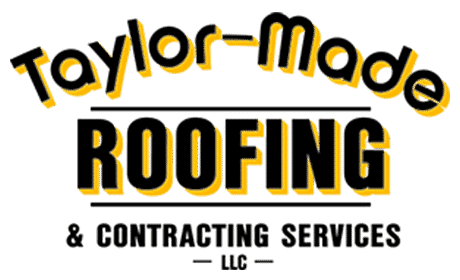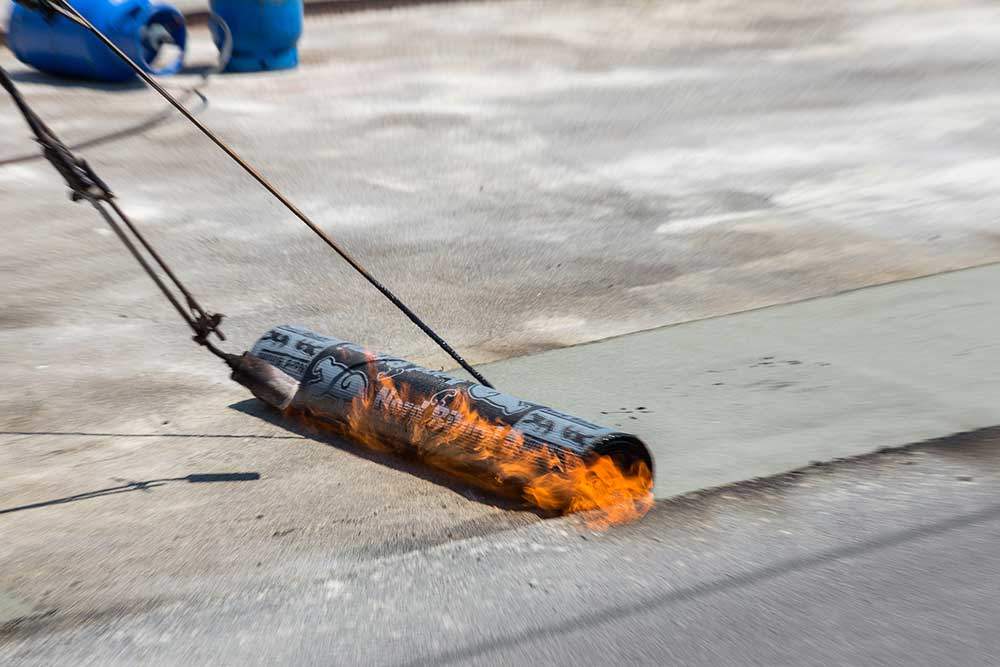When you research flat or low-slope roofing materials, you’ll find a list of everything from rubber to self-adhered roofing. One material you might come across during your research is atactic polypropylene (APP) modified bitumen. Since the 1970s, roofers all across America have been laying APP-modified bitumen roofs (source). Whether you’ve just found out that your roof is made out of APP-modified bitumen or you’re thinking about making the switch, take the pros and cons of APP-modified bitumen into consideration.
Pros and Cons of APP-Modified Bitumen
About APP-Modified Bitumen
APP-modified bitumen is a roofing membrane. Contractors typically apply these membranes to asphalt with a torch. The process looks a little similar to mopping, as the contractor must spread the membrane across all sections of the roof. Once applied, you can choose to leave the roof’s surface smooth or add granules. Depending on what climate you live in, your roofing contractor may highly recommend granules. Why? Granules can help keep your building cooler if you live in an area that experiences hot summers.
Pros of APP-Modified Bitumen
Modified bitumen certainly has its advantages. Why else would contractors have been using it for the past 50 years? Compared to other roofing materials, modified bitumen is inexpensive. On top of the great price, it lasts for decades, and most manufacturers offer warranties that last between 10 and 20 years.
In addition, APP-modified bitumen roofs rarely leak because they don’t have seams, making this material a great waterproof roofing option. The material is also very flexible, so it is unlikely that a hail storm will leave cracks, dents, or other damage. Thanks to its durability and low price point, APP-modified bitumen remains a great option for most commercial buildings.
Cons of APP-Modified Bitumen
In a perfect world, one roofing material would work on any roof in any climate. Unfortunately, APP-modified bitumen, like all roofing materials, isn’t a one-size-fits-all solution. If your roof doesn’t have a proper draining system, this roofing material can deteriorate quickly, as standing water wears down the material. In addition, APP-modified bitumen isn’t ideal for roofs that experience frequent foot traffic. So if your building has a rooftop patio, consider looking for a different roofing material. Another drawback of APP-modified bitumen is that it can attract heat and raise cooling costs. However, you can avoid this problem by asking your contractor to apply granules or a reflective coating on top of the modified bitumen.
_____
The APP-modified bitumen application process is complicated. The temperature and product consistency must be just right for successful installation. When choosing a roofing company, ask if they have experience with installing APP-modified bitumen roofs. In addition, it is important to check that your contractor has insurance. Between the slippery material and the flame from the torches, installation can be a risky business, and your bank account shouldn’t be held responsible.
As you can see, there are many pros and cons of APP-modified bitumen. Although the pros often outweigh the cons, only a contractor can determine whether or not this type of roof is right for your building.
Do you have any questions about the pros and cons of APP-modified bitumen? If you live in southwest Missouri, contact Taylor-Made Roofing for help. With over 20 years of experience in residential and commercial roofing, Taylor-Made Roofing is a company that you can trust with all of your roofing needs. Our family-owned business offers quality services, a reassuring warranty, and free estimates. For more information, please contact us online. We look forward to hearing from you!

